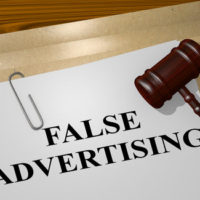What You Need to Know About the ‘Restore Online Shoppers Confidence Act’ (ROSCA)

Every year, a larger percentage of American commerce is done over the internet. This has led to the rise of a wide variety of different types of business models, including the re-emergence of subscription services. Indeed, it seems like web-based subscription services are everywhere nowadays. Though, sometimes these services are marketed to customers in a highly confusing manner.
If you have ever signed up for one of these services, either intentionally or unintentionally, you may be aware of the fact that your credit card will be charged repeatedly, usually on a monthly basis, until you actively cancel the service. In the business world, this model is known as negative option marketing. In some cases, it can toe the line of a lawful business practice and unlawful false advertising.
In 2010 the United States Congress became so concerned about the deceptive manner in which negative option marketing was being used on the internet that it passed the Restore Online Shoppers Confidence Act (ROSCA), a regulation designed to protect consumers from deceptive advertising. Here, our West Palm Beach fraud attorneys explain your rights under ROSCA.
Negative Option Marketing: Federal Regulations
Under the Restore Online Shoppers Confidence Act, companies cannot use negative option marketing (opt-out subscription services) to sell products or services to American consumers over the web unless they meet the following three legal requirements:
- The full terms of the purchase must be made clear at the time of the sale so that reasonable customers can have a fair opportunity to understand exactly what they are buying.
- The company must obtain express consent from the consumer indicating that they wish to take part in an ongoing, opt-out subscription program. Once again, the seller’s specific terms must be made clear before billing information is taken.
- The company must give the consumer a clear and obvious mechanism to opt-out of the subscription service at any time. Further, opt-out must be granted without any inappropriate hassle or undue delay.
If a company fails to do any of the three things listed above, because the company was either hiding the fact that they were marketing a subscription service in the first place or the company makes it nearly impossible to cancel their products or services, then that business is violating federal consumer protection law. If you are a consumer who has lost a substantial amount of money due to false internet advertising, you need to take action. Please do not hesitate to seek assistance from a professional legal advocate immediately.
Request Your Free Legal Consultation Today
At Pike & Lustig, LLP, our Florida consumer fraud lawyers have helped many victims recover the full and fair compensation that they are owed under consumer protection laws. If you were a victim of unlawful negative option marketing or any other type of internet-based fraud, we can help. Please reach out to us today to request a free review of your claim. We have offices in Miami and West Palm Beach and we represent consumers throughout Southeast Florida.
Resource:
ftc.gov/system/files/documents/statutes/restore-online-shoppers-confidence-act/online-shoppers-enrolled.pdf
